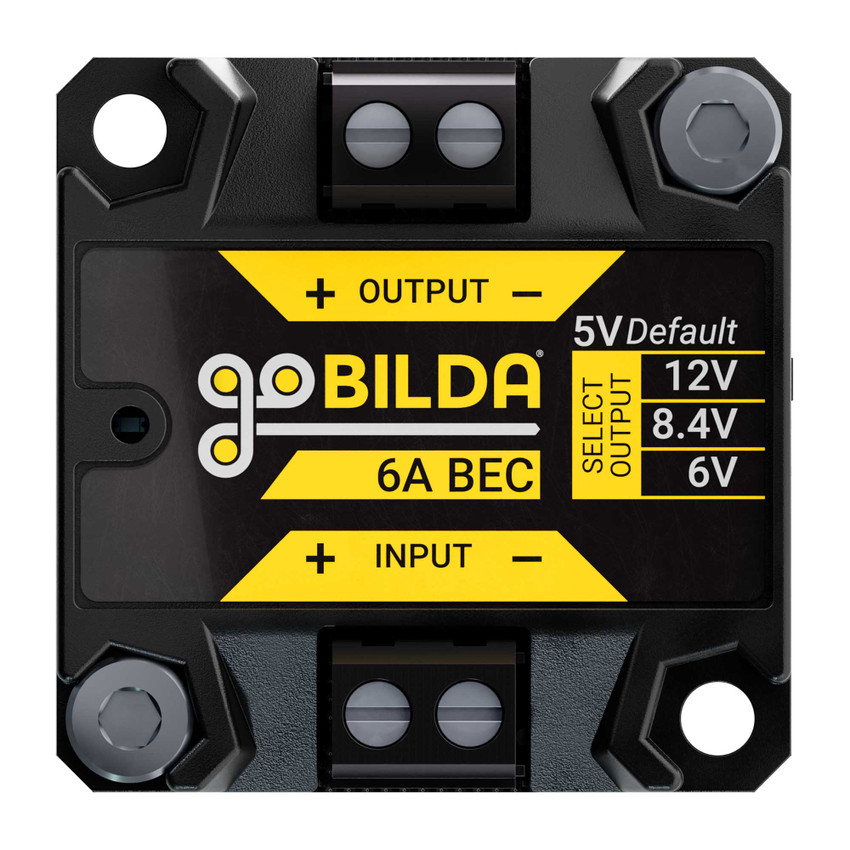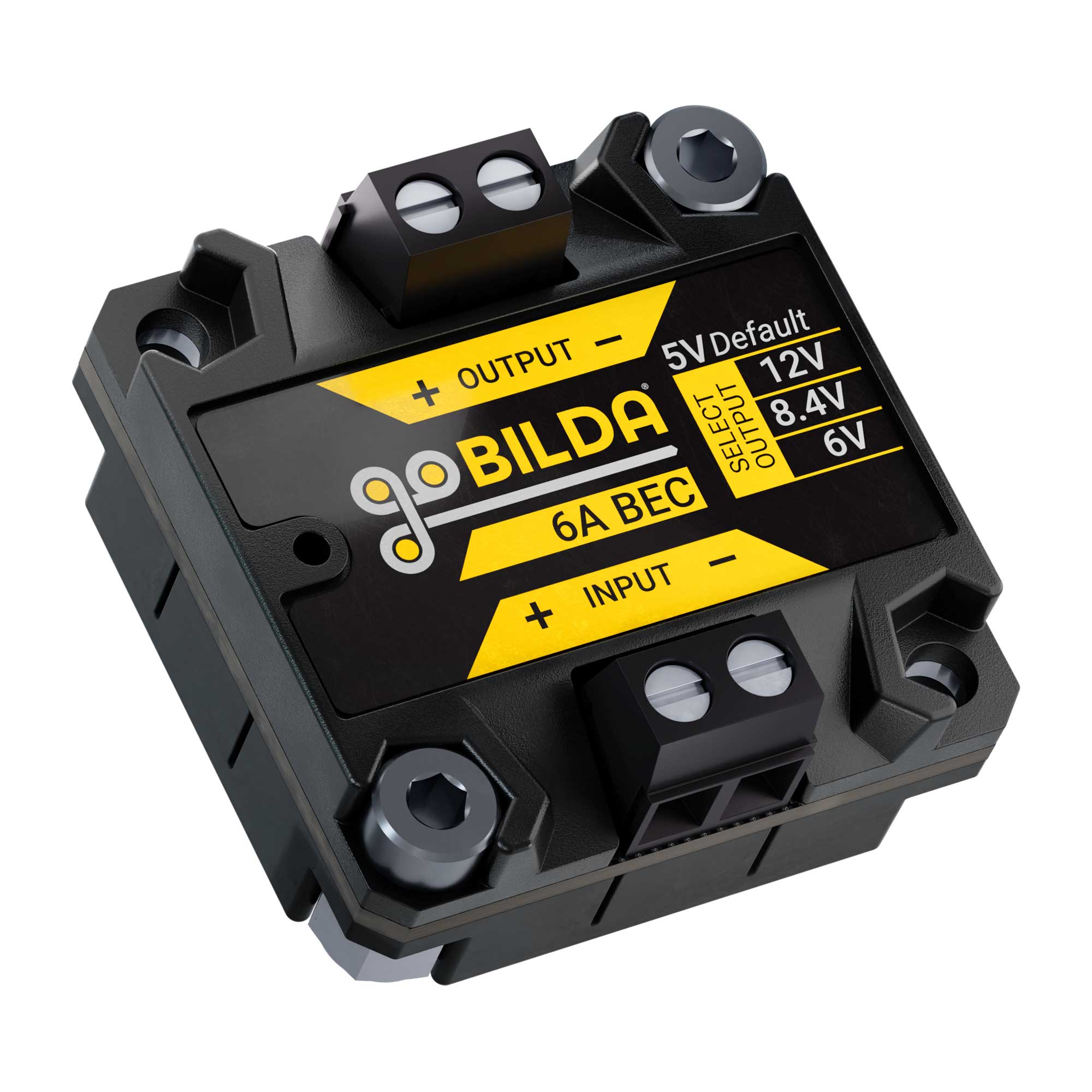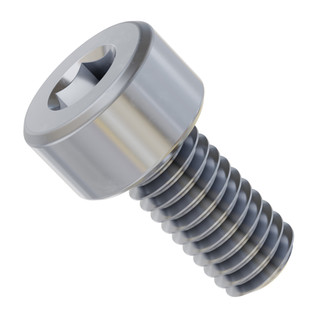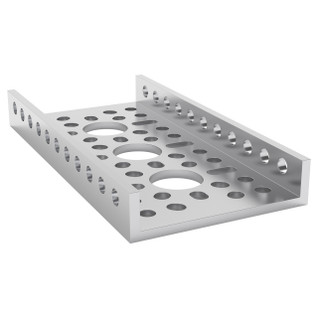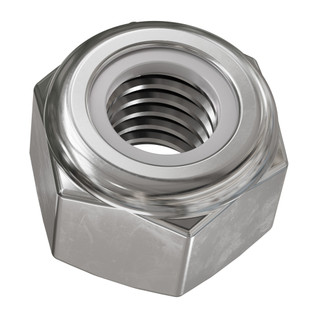6A BEC / Voltage Regulator (6-24V Input, 5V, 6V, 8.4V, 12V Output, Screw Terminals)
SKU:This 6A BEC / Voltage Regulator reduces input voltage down to one of four selectable output voltages. Its screw terminals accept 14-26AWG stranded wires.
The BEC is highly mountable within the goBILDA® ecosystem thanks to thru-holes on the 32mm square pattern. Two holes are pre-equipped with case-fastening screws that you can easily replace so you can use four screws in the installation of the BEC to your build.
Tech Terms
In the world of R/C hobbyists, this component is known as a Battery Eliminator Circuit (BEC) for how it eliminates the need for additional batteries when a project’s components require different voltages.
To the electrical engineering crowd, meanwhile, this type of BEC is known by several other names. One is “switching regulator." A switching regulator is more efficient than other regulators, including linear ones. And within the world of switching regulators, it’s specifically named a “buck converter” because it opposes (“bucks off”) voltage from its input.
Buck converters themselves are sometimes called “step-down converters” or “step-down voltage regulators.” As the name implies, this sort of voltage regulator specifically regulates voltage down—and not up—from input voltage.
Tech Tip
Incoming voltage (accepted via the BEC’s screw terminal input) must be at least 1V above the selected output voltage, set at 5V by default. You can change the voltage provided by the BEC’s screw terminal output to either 6V, 8.4V, or 12V by moving a jumper included in the BEC's side.
⚠️WARNING:To prevent damage to the BEC, ensure that the devices you power with it draw a combined current of less than 6A. When powering motors, take note of their Stall Current. For instance, Yellow Jacket Planetary Gear Motors have a stall current of 9.2A, which makes them incompatible with this BEC.
Downloads
Specs
| Weight | 27g |
|---|---|
| Output Voltage | 5V, 6V, 8.4V, 12V |
| Dropout Voltage | 1V |
| Typical Efficiency | 83–93% |
| Output Current | 6A Continuous (7A Burst) |
| Output Voltage Ripple | ≤ 300mVpp |
| No Load Current | 10–20mA |
| Input Voltage (@5V Output) | 6–24V |
| Input Voltage (@6V Output) | 7–24V |
| Input Voltage (@8.4V Output) | 10–24V |
| Input Voltage (@12V Output) | 13–24V |
| Compatible Wire Guage | 14–26AWG |







